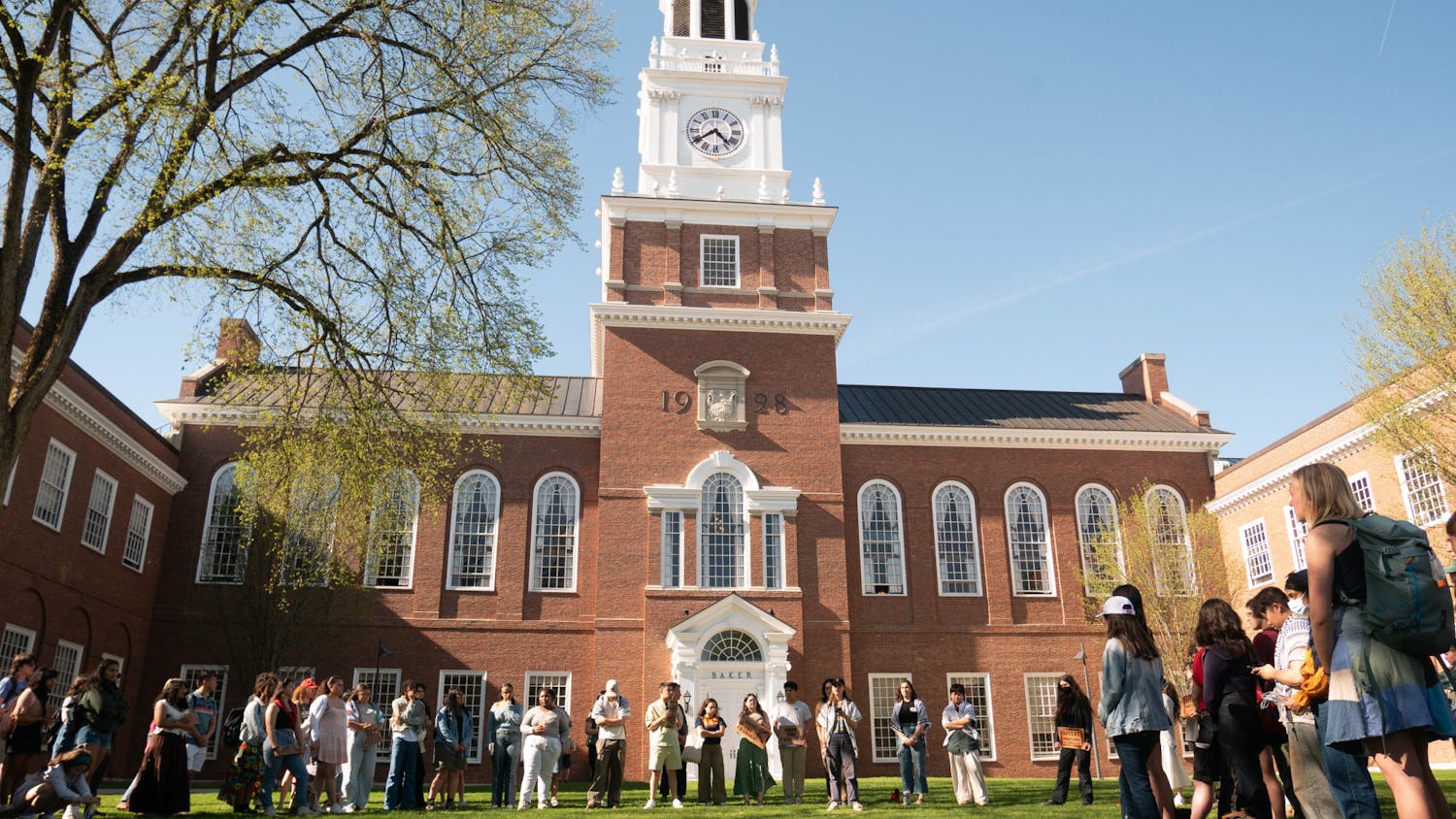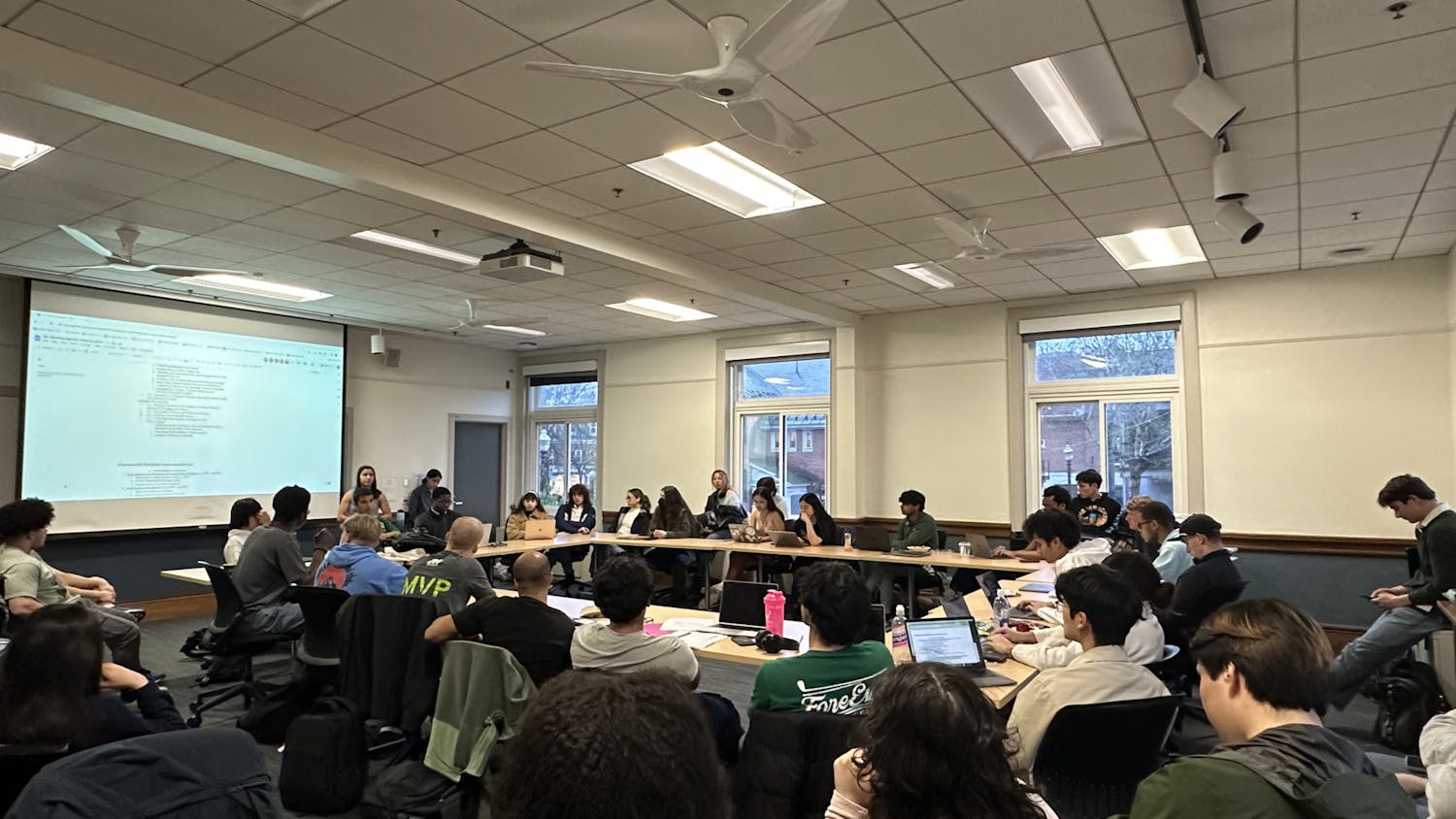The Class of 2013 will not be the only group saying goodbye to Dartmouth on Sunday. Several faculty members, including former College President James Wright, will leave the College at the end of the academic year.
Psychology professor George Wolford, music professor Larry Polansky, math professor Martin Arkowitz, earth sciences professor Gary Johnson, Russian professor Barry Scherr and French professor Mary Jean Green will also depart. Christopher Strenta, associate dean for finance and operations, declined to provide a full list of leaving faculty.
Wright began teaching at the College in 1969 in the history department. He served as dean of the faculty from 1989 to 1997 and as provost from 1997 to 1998. Wright became president in 1998, a position he held for 11 years.
During Wright's presidency, undergraduate applications to the College increased by 79 percent. Wright expanded the faculty, leading to an eight to one student to faculty ratio, and helped to make Dartmouth the Ivy League institution with the most tenured female faculty members.
Wright published his latest book, "Those Who Have Borne the Battle: A History of America's Wars and Those Who Fought Them," last April. In 2007, Wright was featured on ABC World News for his work with American veterans. In June 2009, the Boston Red Sox invited Wright to throw an opening pitch to honor his work.
Scherr, who served as provost for eight years under Wright, said that Wright will be remembered for his work on the academic environment.
"He made a sincere effort to improve student diversity," Scherr said.
Scherr said that Wright's skills as a professor impacted his time at Dartmouth as much as his leadership positions. Wright's experience at the College made him an expert on all things Dartmouth.
"He brought a strong institutional memory to every position he held," Scherr said.
Wolford, who has taught at Dartmouth for 44 years, said he will remain involved with his department. Wolford's interest areas include memory and decision making.
"I'm not exactly leaving," he said. "I'm still on a few grants."
Wolford made close friendships with his colleagues, graduate students and undergraduate students during his time at the College, and said he does not expect to lose touch with the community.
"I've made lifelong friends with many of my graduate students," he said. "Even though they live all over, I manage to see many of them each year."
Wolford said he is proud of helping undergraduate students publish research, though there are aspects of his work that he will not miss.
"I've jettisoned all my committee work," Wolford said. "I definitely won't miss being on committees. We've adopted a policy of flexible retirement where you can go on teaching part-time, which I've done for the past few years."
Polansky, who served as the music department chair from 1998 to 2003, founded Frog Peak Music, a composer's collective that produces experimental work, in 1984. His work focuses on music composition, computer music and electro-acoustic music.
Arkowtiz began teaching at the College in 1964 and works primarily on algebraic topology.
"He's influenced graduate students and professors all over the world," math department chair Dan Rockmore said.
Johnson's areas of expertise include the Mesozoic world, the Ice Ages, paleobiology and geobiology and human evolution.
Scherr taught Russian language classes and 19th and 20th century Russian literature. His research interests include narrative theory and versification.
Green's areas of interest are French writers and filmmakers and 20th century fiction.



